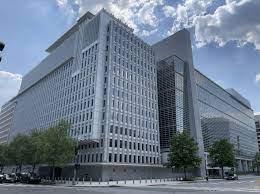
Chijioke K. Mama
11 January 2015, Sweetcrude, Lagos – Governance in Africa is far from transparent. This is also true in many other parts of the world. Despite repeated rhetoric, the level of corruption in the management of Africa’s natural resources is alarming.
Worse is the fact that governance is intentionally shrouded in a mystical secrecy, of which citizens or affected institutions can not dare to unravel. Big Spenders: Swiss trading companies, African oil and the risk of opacity” is the theme of a report released by Swiss-based Berne Declaration (BD) in July 2014.
BD is a non-profit campaigning for more equitable relations between Switzerland and underprivileged nations. The report validates the unexpressed fears of many suffering citizens in sub-Sahara Africa. By selecting 1500 crude sales transactions in 10 sub-Saharan oil producing nations of Angola, Cameroun, Chad, Cote d’Ivoire, Republic of Congo, Equatorial Guinea, Gabon, Ghana, Nigeria, and Sudan; BD highlighted the presence of “Resource curse” in Africa.
“Resources curse” a situation where resource-rich nations exhibit higher levels of poverty, lower-quality of governance and democracy than less resource endowed nations. Many of these nations are involved in shady transactions relating to the sale of oil and gas commodities.
These governments and their National Oil Companies (NOC) allegedly create condition that encourages corruption in buyer selection and price determination for commodity sale in Oil, Gas and Mining industries. This is often in connivance with foreign commodity trading giants.
The report identified that Swiss companies purchased close to 25% of total sales between 2011 and 2013. Buying over 500 million barrels valued at $55 billion. The report opines that;
a) Swiss Commodity Trading Companies: many giant Swiss commodity trading companies are involved in oil purchase and payment transactions that account for significant portions of total government revenues in Sub-Saharan African countries (56% in the ten countries studies). These sales are not regulated and have led to decades of unprecedented growth for the companies that attracts public attentions. However neither the oil-producing governments nor the home country of these companies has made efforts towards the institution of transparency in the process. Albeit, to the benefit of all stakeholders except the poverty stricken citizens.
b) Oil-Producing Governments and their NOCs: often controlled by the state, NOCs execute crude oil sales in environments of worrisome secrecy; it is common to find records of sales that do not specify the identity of the buyer nor the seller. These governments are not open to the adoption of rules and procedures that will promote integrity in the process.
c) Switzerland and other commodity trading hubs in the world: Switzerland, according to the report may be required to do more to encourage transparency in the activities of these companies, whose payments directly impacts the quality of life in many resource-rich but poor nations. This might also be required of other nations and/or economic blocs such as the US, EU and China.
The Salient Points of the Big Spenders Report
All NOC in Africa are fully owned by their respective governments, thus proceeds from the sale of Oil, Gas and Mineral are usually transferred to the state treasury, according the report, or held in part by the NOCs. The NOCs themselves are involved in the sale of significant portions of national productions.
They obtain crude oil from many sources such as a) Their share in Joint Venture (JV) initiatives b) governments allocation in production Sharing Contracts (PSC) c) in-kind payments received from private companies as part of royalties or tax liabilities. d) Production from their own E and P operations. The procedure and guidelines for these transactions and the consequent payments grossly lack integrity in many of the countries studied according to BD’s research.
In spite of the recent global movement to increase transparency in the extractive industries, especially in developing nations, many nations and commodity trading companies are yet to adopt measures meant to promote good practices. The Extractive industries Transparency Initiative (EITI) has been adopted by about 45 nations, yet public disclosures with respect to payment made to government and NOC in many developing nations has been shunned. This leaves citizens at the mercy of corrupt leaders and institutions.
The share of commodity sales in sub-Saharan Africa involving Swiss giants is significant enough to attract the attention of the Swiss government (and other commodity-buyer nations), via the enactment of laws that mandate public disclosures for these commodity traders. They are believed to have perfected “the skill of forging the right (wrong) political relationships with African governments” However, a recent report from the Swiss government (June 2014) has indicated a preference to exclude such payment in future regulations requiring public disclosure. This makes it even less likely that citizens will ever have a tool to confront a resource-corrupt government.
These commodity traders frequently declare revenues in excess of $100 billion, placing them in the league of companies like Apple and Chevron and raising suspicion about the legitimacy of their business involvements.
The Implication for the Citizens
The Mo Ibrahim Prize for Achievement in African Leadership could not find a winner among African leaders for the year 2009, 2012 and 2013. A systematic procedure for selecting African leaders who has demonstrated leadership excellence has failed to identify any winner during this period. This portrays the state of transparent leadership in Africa and the effectiveness of governments and leader in delivering citizens’ expectation. The deliberate lack of transparency in commodity payments for resources that accounts for significant percentages of the GDP and government revenue should be a serious source of concern for sub- Saharan Africans. If citizens are not provided the tool required to hold their governments accountable, then executive profligacy will be promoted and enshrined while blatant and brazen corruption will be celebrated. No other entity is more culpable than the institutions of the affected nations which continually support opacity in payments from commodity sales and also continually produce leaders who see public resource as a means to personal gains.
On Nigeria’s Commodity Trading
It will be naïve to attribute the absence of transparency in the sales commodities that constitute up to 90 percent of government revenue to any one individual, regime or institution. Neither the president nor the concerned cabinet can be solely held accountable. The lack of integrity, transparency and standard rules in these transactions is a systemic anomaly that benefits many institutions and individuals.
The crude oil sales procedure in Nigeria is sufficiently complex (maybe deliberately so) to indict – literally – everyone in the chain. This includes agents who constantly connive to see that metering facilities at major loading terminals are constantly in a broken state; making it impossible to capture accurate data on sales (a situation that benefits both buyers and sellers). Also culpable are high ranking functionaries and their foot soldiers that consciously mystify other areas in the transaction to create the needed opacity. It’s hard; however, to completely exonerate the leadership of the Nigerian government from the theft.
Having inherited a systemic problem, it behooves the leaders, especially law maker, to enact laws that introduce the much needed transparency. This will ensure that all aspects of the nation’s development-critical extractive industry are channeled towards the provision of the needs of the much suffering masses. Dakar to Abuja, N’Djamena to Luanda, and the same gory picture is seen of affluent nations with tear-eyed suffering citizens and millions of households lacking the most basic of needs which are taken for granted in resource-poor nations.
*Chijoke K. Mama is a Senior Oil and Gas analyst based in Lagos. Chijioke.mama@yahoo.com | 070-6101-3333.



